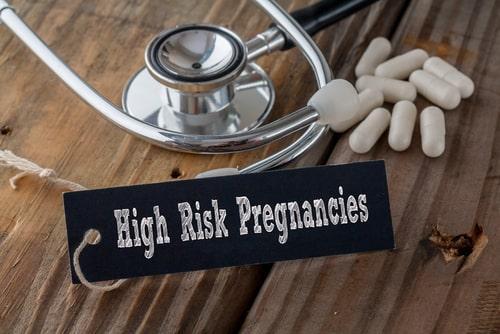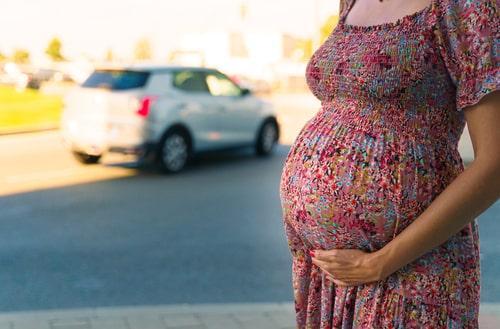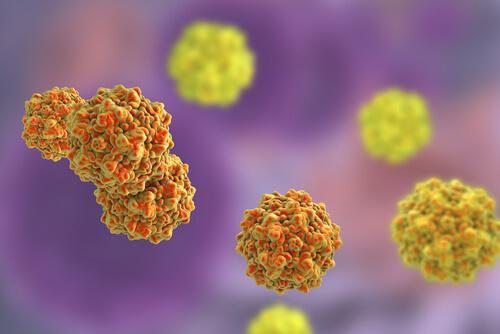Chicago, IL 60601
FREE CONSULTATIONS 312-462-4200
TOLL FREE 833-462-4200
Recent Blog Posts
What Can Cause Sepsis During or After Childbirth?

There are numerous health issues that can affect mothers and children during pregnancy, labor, and delivery. When birth injuries occur, they can have serious effects, and if the proper treatment is not provided as quickly as possible, they may result in wrongful death. Sepsis, a serious and potentially life-threatening condition that can occur during or after childbirth, is caused by an infection in the bloodstream, and it can be deadly if not properly treated. In fact, infections and sepsis are the second leading cause of pregnancy-related deaths, accounting for nearly 14 percent of all deaths. It is important for families to understand how sepsis occurs so that they can be informed and take the necessary steps to protect the life and health of a mother and her baby.
Can Meconium Aspiration During Childbirth Lead to Cerebral Palsy?

There are a variety of complications that can occur during pregnancy and childbirth. During labor and delivery, doctors and nurses must closely monitor a mother and quickly address any issues that could threaten the health of her or her child. Failure to diagnose and respond to potential risks could lead to injuries with long-term effects. Meconium aspiration is one issue that may occur during prolonged labor or traumatic delivery, and if not treated correctly, it could have permanent effects on a child's health, including the possibility that the child will develop cerebral palsy.
What Is Meconium Aspiration?
Meconium aspiration occurs when a baby inhales meconium, a black, sticky substance that is present in the intestines of all newborns. Meconium is composed of amniotic fluid, skin cells, and other fluids or particles that the baby ingests while in the womb. Meconium may pass out of the child's body while they are still in the womb and become mixed in with the amniotic fluid. The child may then inhale the meconium during labor and delivery. In many cases, meconium aspiration is not harmful and will not cause any long-term problems. However, in some cases, meconium aspiration can lead to cerebral palsy.
What Can Cause Cerebral Palsy During Pregnancy and Childbirth?

Although the process of carrying a pregnancy to term and delivering an infant is hardly unique, it is fraught with opportunities for complications and injuries to both the child and the mother. One of the most common outcomes of exposure to dangerous conditions during pregnancy and childbirth is cerebral palsy, a developmental disorder that varies in severity and can make it difficult for a child to develop normatively both physically and neurologically.
Many cases of cerebral palsy are congenital, but there are tragic cases that are the result of medical malpractice on the part of neonatal and delivery doctors, nurses, and anesthesiologists. Here are some of the most common avoidable causes of cerebral palsy during pregnancy and childbirth:
Untreated Infection and Fever
When a pregnant mother develops an infection, her body produces cytokines to fight the infection. Unfortunately, these can cause inflammation to the baby as well as the mother, leading to brain damage in the baby. A high fever can cause a similar reaction, which is why diagnosing and treating infections and fevers quickly and effectively is so important during pregnancy.
My Epidural Caused Severe Nerve Damage. Can I Sue?

Childbirth is notoriously one of the most painful experiences a human body can endure. For many women, an epidural - a very common procedure that relieves pain during labor and childbirth - has made a major difference in the quality of the childbirth experience. However, like all medical procedures, epidurals are not without risks, especially when they are performed by undertrained, negligent, or careless anesthesiologists or nurse anesthetists. If you recently had a baby, and the epidural you were given caused serious nerve damage, you may be wondering what legal options are open to you.
Epidural Nerve Damage and Lawsuits
Also known as an epidural block, epidural anesthesia, or neuraxial anesthesia, an epidural involves injecting an anesthetic into the area in a patient’s back between the spinal nerves. Epidurals typically result in the complete lack of certain feelings, including pain, from the desired area of the body.
High-Risk Pregnancies and Insufficient Medical Care Are a Dangerous Combination

For most women, pregnancy and childbirth are straightforward, albeit uncomfortable, processes. After nearly 10 months in the mother’s body, an infant is born, and the family celebrates the welcoming of a new little one. For many women, however, things are complicated right from the beginning. Known as “high-risk pregnancies,” pregnancies involving certain factors require much more extensive care and monitoring to keep the mother and baby safe. If this care is not provided because an OB fails to recognize risk factors, does not make appropriate referrals, or does not provide the necessary treatment, the lives and health of both the mother and child could be at risk of birth injuries.
What Are Risk Factors for High-Risk Pregnancy?
Excellent research is available on risk factors during pregnancy and doctors who specialize in providing healthcare to pregnant women should be constantly assessing their patients for signs that a pregnancy is, or could become, high-risk.
Can I Sue a Doctor If My Baby Is Stillborn?
 Pregnancy is one of the most difficult things a human body can experience. In a very short period of time, a woman undergoes massive hormonal changes that can cause severe sickness, weight gain, and structural alterations to her body that do not necessarily go away once a child is born. However, most women are happy to go through these difficult changes because, at the end of the process, they get to hold their infant in their arms.
Pregnancy is one of the most difficult things a human body can experience. In a very short period of time, a woman undergoes massive hormonal changes that can cause severe sickness, weight gain, and structural alterations to her body that do not necessarily go away once a child is born. However, most women are happy to go through these difficult changes because, at the end of the process, they get to hold their infant in their arms.
Being robbed of this experience because inadequate medical care caused the loss of an infant during the pregnancy can change a parent’s life forever—especially if a stillbirth occurred late in pregnancy, shortly before the child was expected to be delivered. While this can happen from natural causes, medical malpractice can unfortunately cause an infant’s life to be lost while in the womb or during delivery. If you know or suspect that this happened to you, Birth Injury Law Alliance, Ltd. is here to help. We know we cannot bring back your child, but we can help you take action against the person responsible for your loss and potentially help future parents avoid such painful scenarios.
What Is Pitocin and How Does It Affect Childbirth?
 Most women have at least heard their friends or even their doctors mention “pitocin” as something that might be used as part of the childbirth process. Pitocin is most commonly used to induce or speed up labor in pregnant women. While it can be beneficial in certain situations, there are potential risks associated with its use. You should always speak with your doctor about medical concerns, but today, we will discuss what Pitocin is, how it is used, and what risks may be associated with its use during childbirth.
Most women have at least heard their friends or even their doctors mention “pitocin” as something that might be used as part of the childbirth process. Pitocin is most commonly used to induce or speed up labor in pregnant women. While it can be beneficial in certain situations, there are potential risks associated with its use. You should always speak with your doctor about medical concerns, but today, we will discuss what Pitocin is, how it is used, and what risks may be associated with its use during childbirth.
Understanding What Pitocin Is
Pitocin is a synthetically produced form of oxytocin, a hormone naturally produced by the body during labor and delivery. When produced naturally, oxytocin helps uterine muscles contract, which begins the process of pushing the baby out into the world. During childbirth, however, some women may not produce enough natural oxytocin to efficiently bring about labor. In situations such as these, doctors may recommend using Pitocin (or oxytocin) as an assistive measure.
Diagnosing Cerebral Palsy: Connecting Developmental Disorder to a Birth Injury
 Cerebral palsy (CP) is a developmental disorder that affects the nervous system and can lead to movement issues, and it is often caused by birth injuries. It is important to understand what could have happened during the birthing process that could lead to a diagnosis of cerebral palsy. In addition, it is important to know how CP is diagnosed, as well as to learn a little about the needs of children with cerebral palsy.
Cerebral palsy (CP) is a developmental disorder that affects the nervous system and can lead to movement issues, and it is often caused by birth injuries. It is important to understand what could have happened during the birthing process that could lead to a diagnosis of cerebral palsy. In addition, it is important to know how CP is diagnosed, as well as to learn a little about the needs of children with cerebral palsy.
What Could Happen at Birth That Leads to The Development of Cerebral Palsy?
A birth injury can occur when the baby does not receive enough oxygen during delivery. This lack of oxygen can cause brain damage which can then result in cerebral palsy. Other causes of cerebral palsy include infection in the mother during pregnancy or labor, preterm delivery, and trauma during delivery—such as if forceps were used incorrectly or an overly large baby was delivered without a Cesarean section. Brain damage resulting from these events can cause permanent impairment of motor skills and function leading to cerebral palsy.
What You Should Know About Parvovirus B19
 Also known as “fifth disease” or “slapped cheek syndrome,” parvovirus B19 is a virus that mainly affects children but can sometimes affect adults as well. It is commonly spread through contact with saliva or other bodily fluids like mucus or blood. The virus usually causes mild symptoms such as fever, rash, and joint pain in infected individuals. However, if a woman contracts the virus during pregnancy it can lead to serious complications for both her and her unborn child. In today’s blog post, we will discuss some of the risks associated with parvovirus B19 for pregnant mothers.
Also known as “fifth disease” or “slapped cheek syndrome,” parvovirus B19 is a virus that mainly affects children but can sometimes affect adults as well. It is commonly spread through contact with saliva or other bodily fluids like mucus or blood. The virus usually causes mild symptoms such as fever, rash, and joint pain in infected individuals. However, if a woman contracts the virus during pregnancy it can lead to serious complications for both her and her unborn child. In today’s blog post, we will discuss some of the risks associated with parvovirus B19 for pregnant mothers.
Risks for Pregnant Mothers
If a pregnant woman contracts parvovirus B19, there are several potential risks she may face including miscarriage, preterm labor, stillbirth, low birth weight, and anemia. Babies born to mothers who have been infected with the virus may suffer from anemia or chronic arthritis due to their weakened immune systems caused by the virus. In some cases, parvovirus B19 can even cause congenital heart defects in newborns, which can be life-threatening if left untreated. In addition to these physical effects of the virus on mother and baby, there are also psychological implications such as anxiety or depression in expecting mothers due to the fear of harm coming to their unborn child.
When C-Sections Become Necessary: Understanding the Risks Involved
 Childbirth is usually a beautiful, natural process that should be celebrated. But sometimes, complications arise during labor and delivery, and an emergency cesarean section (C-section) becomes necessary to ensure the safety of both mother and baby. With this in mind, we will look at and discuss some of the most common scenarios in which ordering a C-section becomes a medical necessity, as well as the dangers involved with waiting too long to order one.
Childbirth is usually a beautiful, natural process that should be celebrated. But sometimes, complications arise during labor and delivery, and an emergency cesarean section (C-section) becomes necessary to ensure the safety of both mother and baby. With this in mind, we will look at and discuss some of the most common scenarios in which ordering a C-section becomes a medical necessity, as well as the dangers involved with waiting too long to order one.
When Is a C-Section Necessary?
A C-section can become medically necessary in certain situations where labor or delivery may pose a risk to either mother or baby. For example, if a baby’s umbilical cord is wrapped around its neck or body or if the baby is showing signs of distress such as decreased heart rate, an emergency C-section might be indicated. Other situations in which ordering a C-section could be medically necessary include placenta previa (where the placenta covers all or part of the cervix) and placental abruption (where the placenta separates from the uterus before delivery). Moreover, if labor has not progressed after several hours or if there are other signs of fetal distress, then a C-section may be needed for safe delivery.





